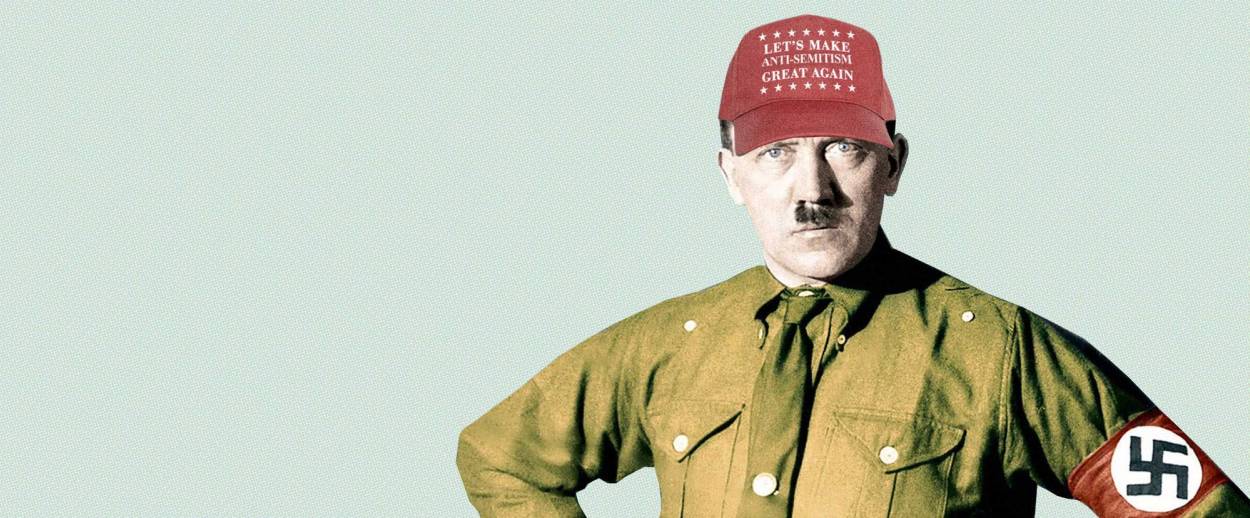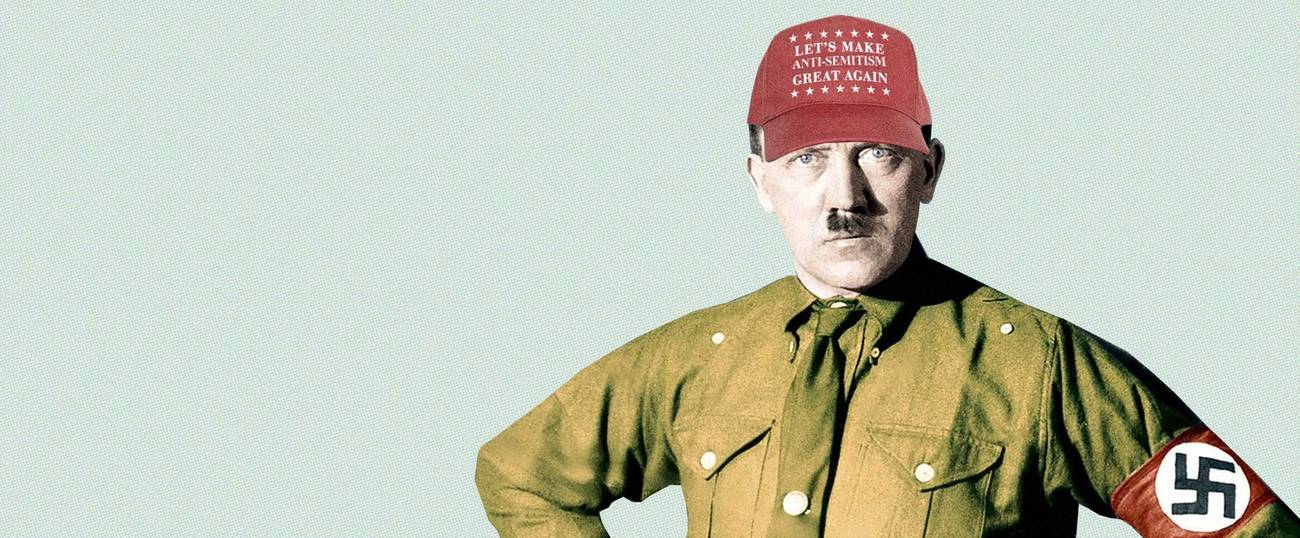A German Pastor Wants To Make Anti-Semitism Great Again
And we should all be grateful for it




When I was 13, I wore pastel-colored tracksuits and a shiny yellow-and-black Batman pin to school every day. It was my way of telegraphing to the world that I was artistic, a pop-culture junkie, a rebel, a weirdo uninterested in sports and beauty and the other preoccupations of junior high. By the time ninth grade rolled in, and following a devastating encounter with Nietzsche, it was on to tattered blazers, torn jeans, and a Mohawk, the uniform, I imagined—not without the encouragement of narcotics—of a serious thinker, an Ubermensch in training, a weirdo, a rebel. Three years in the army scrubbed off much of this pretense; I showed up for the first day of college wearing blue jeans, a black T-shirt, and a black leather jacket, just in case any of the other kids couldn’t tell I was artistic, a rebel, etc.
If you’re doing it right, you’ve had similar experiences. People are performative creatures; it’s what makes us so damn interesting. And like every good performance, ours, too, grows, changes, adapts. We find new forms to express the same ancient ideas, and these forms shape our political affiliations, our romantic engagements, our elective affinities.
Movements are no different. They are, after all, made of, by, and for people, and so, like people, they put on airs as the occasion calls. A student movement that begins as a polite and besuited effort to convince politicians to pursue good policies, for example, may soon morph into a long-haired and raised-fists type of riot, rejecting the same authority it had once tried to pleasantly engage, and from there into a violent cabal who prefer lobbing stones, not slogans, at the disbelievers. History, to a large extent, is the record of these shifts in mood and behavior. And so, when a German pastor declared himself last week to be a proud anti-Semite, he might’ve given us our first glimpse at the brave new turn of Jew hatred, an era far more candid and palatable than any most of us have experienced in our lifetimes.
It started, as historical epochs so often do, with a seeming triviality: Volker Keller, an unimprovably named Lutheran pastor, anti-Israeli activist, and a city councilman in the north German city of Bremen, sent an email last month to a Jerusalem Post reporter describing anti-Israeli activities in his town and boasting about his hatred of the chosen people at large. “Best wishes to Israel,” went the signature line. “Yours truly, Volker Keller, Antisemite.”
The paper asked for a clarification. Keller refused to provide one. His church hurried to argue that Keller’s utterance was just an example of old German humor, a case of sarcasm gone terribly awry. But Keller issued no explanation himself, and so we’re left with no choice but to take him at his word that he truly hates Jews and has no qualms about speaking his mind clearly and unequivocally.
God bless him.
That Volker Keller may be a vile anti-Semite hardly matters. What matters is that he’s one of the very first 21st-century anti-Semites to openly admit it. It’s more than a statement of personal preference; it may be the catalyst for a new age of anti-Semitism.
Very bluntly speaking, and doing a disservice to centuries of scholarship on the subject, you can roughly look at the history of the hatred of the Jews in three big chunks. The first—dawn of Man, more or less, to, say, the 19th century—was a time of religious fury, in which Jews were persecuted for worshiping the wrong God. The second—19th century until the end of WWII—dressed the ancient hatred in modern scientific garb and singled out the Jews for their alleged physical and moral inferiority. The third, our own, realized that the blunt hatred of Jews was uncouth in a post-Hitlerite world, and cleverly reworded its bigotry to claim distaste not for the Jewish people but for the Jewish state, whose policies were forever somehow singularly objectionable. This new anti-Semitism called itself anti-Zionism, and, taking advantage of the plausible and reasonable distinctions between these two ideologies—one could, ostensibly, object to Zionism without objecting to Zion’s sons and daughters—burrowed itself into respectable politics, academia, publishing, and other warrens of power and influence.
It’s time to do away with all that, and Volker Keller is showing us just the right way. Instead of theorizing, equivocating, or obfuscating, today’s anti-Semites should, figuratively and literally, affix the title to their signatures, just as Keller had. They should possess the necessary minimum of intellectual integrity and state their ideas without pretense. This, naturally, would be great for us Jews—imagine what we could do with all the time freed up by no longer having to quarrel about whether a particular pecksniff is a full-blown bigot or merely a political moron—but it would also be great for the anti-Semites. Free to advertise their opinions without having to hide them behind the dark veils of convoluted academic drivel or tortured human rights speak, they could once again come up with compelling slogans and recruit not only the preening poseurs ossifying in peeling classrooms and newsrooms everywhere, but also the robust, warm-blooded, thick-armed thugs that have traditionally manned the ranks of the Jew-haters. And besides, stepping out of the closet of bigotry and speaking freely and honestly is great for the soul; otherwise, even the most industrious anti-Semite is encumbered with having to produce a nonsensical apology every time he indulges his natural proclivities and calls a Jew smelly during a prestigious law school lecture.
Volker Keller, then, we Jews salute you, and thank you heartily for making anti-Semitism great again. If we can’t have no anti-Semites at all, at least let the ones we have be frank.
***
Like this article? Sign up for our Daily Digest to get Tablet Magazine’s new content in your inbox each morning.
Liel Leibovitz is editor-at-large for Tablet Magazine and a host of its weekly culture podcast Unorthodox and daily Talmud podcast Take One. He is the editor of Zionism: The Tablet Guide.